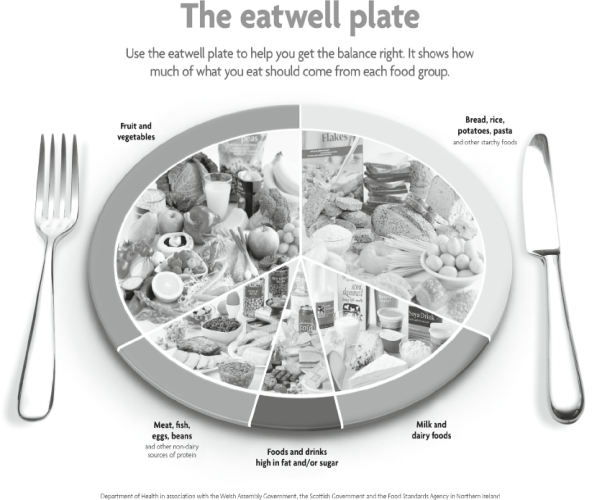How to grow a baby
From conception to
birth, a baby needs enormous quantities of nutrients to grow. The
requirements include about 925 g of protein and 20–30 g of calcium, as
well as a massive 680 mg of iron, equivalent to the amount found in
about 34 kg of beef or 113 400-g cans of baked beans. Fortunately, you
don’t actually need to consume all these extra nutrients. Just as your
body becomes more efficient at using energy, so it gets better at
extracting certain nutrients from the food you eat. As pregnancy
progresses and you require more iron, so your body absorbs more. In the
first three months of pregnancy, women have been found to absorb only
7% of dietary iron, but this increases to 36% around the middle of
pregnancy and to 66% by the end. Because of these metabolic changes,
your requirements for certain nutrients, including calcium, iron and
vitamin B12, are no greater than normal. However, many young
women in the UK consume too little of these nutrients anyway, so it is
important to ensure you have a good intake now. The requirements for
certain other nutrients, including zinc, thiamine, riboflavin, folate
and vitamins A, C and D, are higher during pregnancy.
Although it is essential that you get
enough of these nutrients, you don’t need to worry about monitoring
your intake of each vitamin and mineral every day. If you eat a healthy
and varied diet, full of wholesome unprocessed foods, you should be
getting all the nutrients you need. The healthy diet checklist below
shows the different types of food you should be eating and the main
nutrients they supply. You can see how a diet including all of these
food groups contains all the essential nutrients.
The healthy diet checklist
A healthy diet for two should include the following:
- A variety of fruit and vegetables
(fresh, frozen, tinned or dried). Aim for at least five portions a day
for a good supply of vitamins A, C and E, folic acid and iron.
- Plenty of starchy foods
such as breakfast cereals, bread, rice, pasta and potatoes for
carbohydrates, B vitamins and zinc. Where possible choose wholegrain
varieties, such as brown rice, as these provide fibre and help prevent
constipation.
- Protein foods such as lean meat, chicken, fish, eggs, beans and lentils. These also supply iron and zinc.
- Dairy foods such as milk, cheese and yogurt to provide calcium, vitamin B12 and extra protein. Choose low-fat versions to avoid increasing your fat and calorie intake.
- Iron-rich foods, such as meat and fish, green vegetables and fortified breakfast cereals, to prevent anaemia.

- Good sources of folic acid, such as oranges, broccoli and fortified breakfast cereals.
- Fish at
least twice a week, including one or two portions of oily fish to
supply long-chain omega 3s for brain and eye development. Fish also
provides protein, iron and vitamins B6, B12 and D.